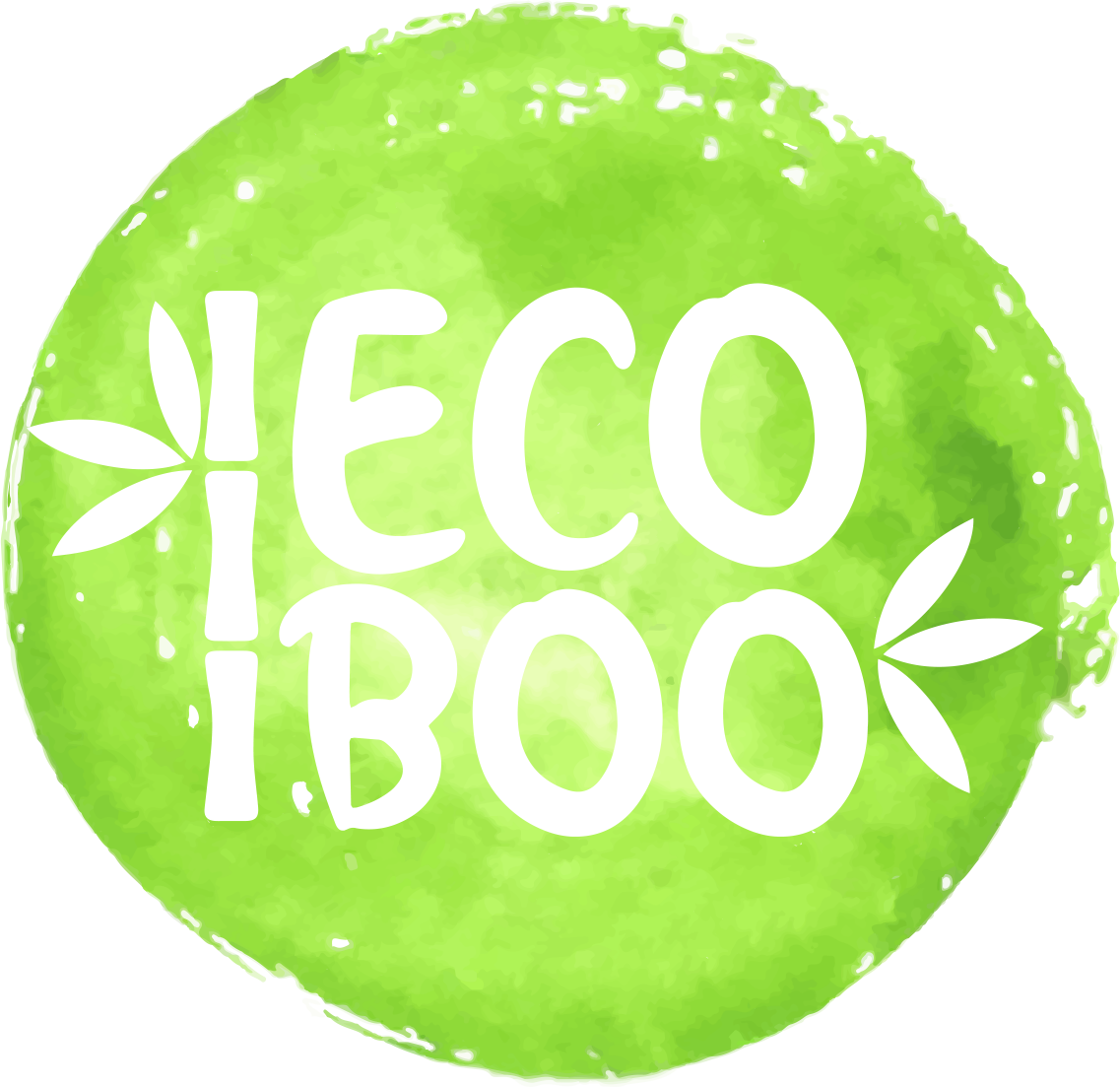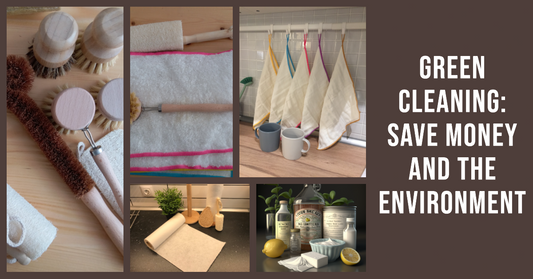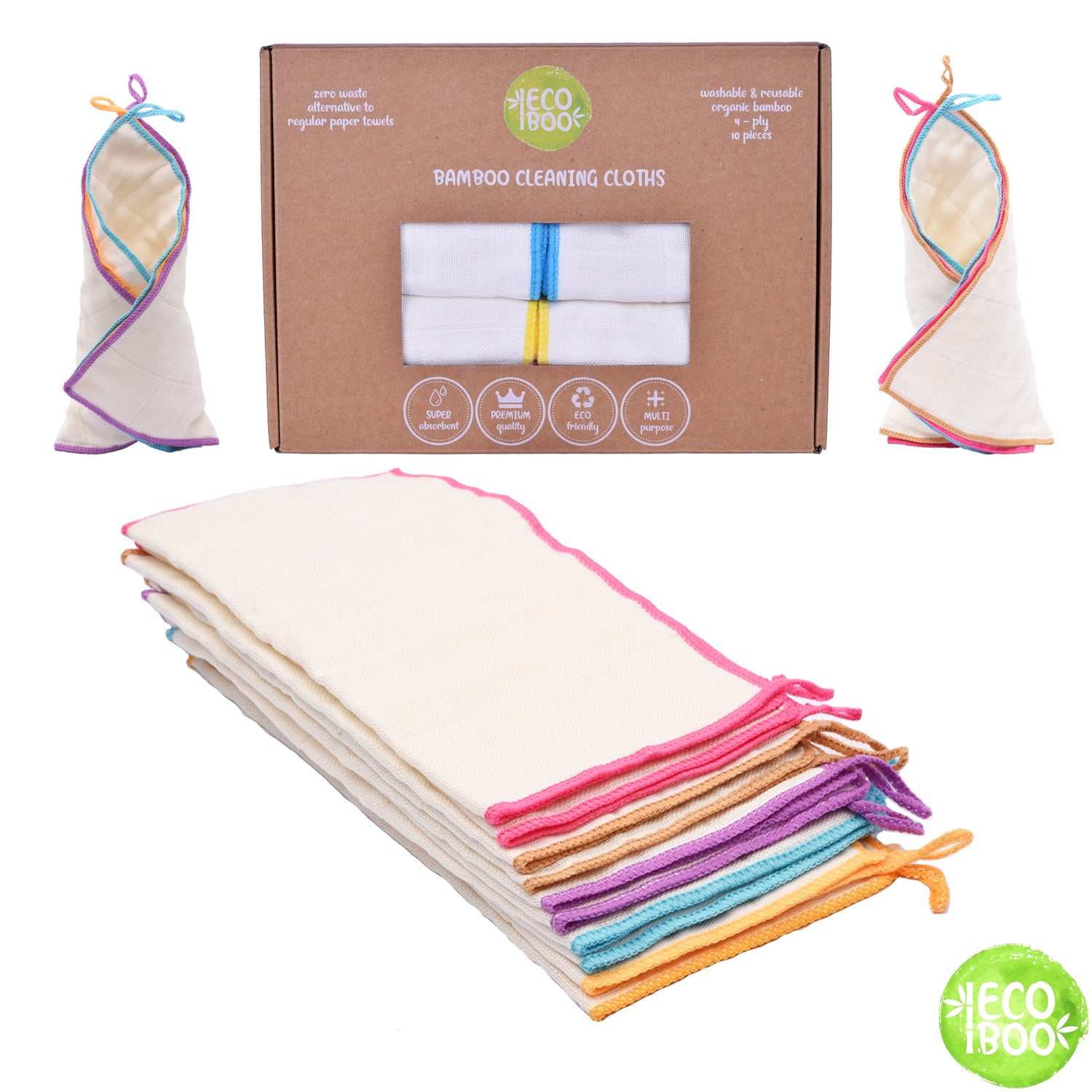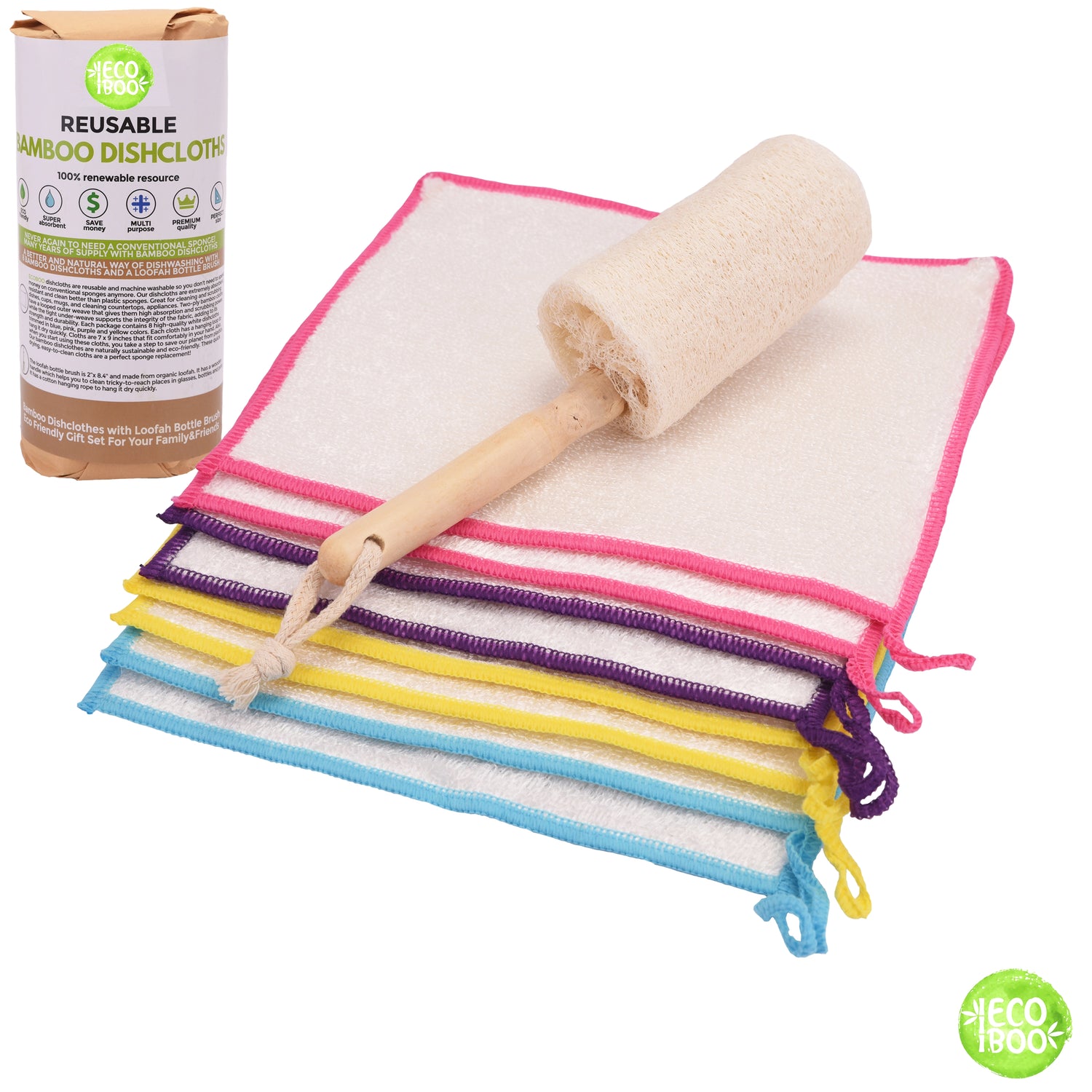Table of Contents
At Ecoboo, we are passionate about sustainable living, and we believe that small changes in our daily habits can make a significant impact on our planet.
In this comprehensive guide, we will provide you with all the information you need to create a sustainable laundry routine that reduces your carbon footprint, saves water, and protects the environment.
Why Sustainable Laundry Matters

The laundry process can have a significant impact on the environment.
Traditional laundry routines consume large amounts of water and energy, which contribute to greenhouse gas emissions and climate change.
In addition, harsh chemicals in laundry detergents can pollute our waterways and harm aquatic life.
A sustainable laundry routine, on the other hand, reduces our environmental impact and helps us live a greener lifestyle.
By adopting sustainable laundry practices, we can save water and energy, reduce waste, and protect our planet.
Choosing the Right Laundry Detergent

One of the most critical decisions in creating a sustainable laundry routine is selecting the right laundry detergent.
Traditional laundry detergents often contain harsh chemicals and synthetic fragrances that are harmful to the environment.
They also require a large amount of water and energy to manufacture and transport.
To reduce your environmental impact, consider switching to a plant-based laundry detergent.
These detergents are made from renewable resources, such as coconut oil and plant enzymes, and do not contain harmful chemicals.
They are also biodegradable and come in recyclable or compostable packaging.
Water Conservation Techniques

Water is a precious resource, and it is essential to conserve it whenever possible.
There are several ways to reduce water consumption in your laundry routine:
- Wash clothes in cold water: Heating water consumes a lot of energy. By washing your clothes in cold water, you can save energy and reduce your carbon footprint.
- Use a high-efficiency washing machine: High-efficiency washing machines use less water than traditional machines, which can save up to 50% on water usage.
- Run full loads: Running full loads of laundry can help you maximize water usage
Air Dry Your Clothes

Drying clothes in a dryer consume a significant amount of energy.
Instead, consider air drying your clothes on a clothesline or drying rack.
Not only will this save energy, but it will also extend the life of your clothes and prevent shrinking or damage from high heat.
Use Wool Dryer Balls

Dryer sheets are a popular laundry accessory, but they're also a major source of waste.
Not only are they single-use, but they're also loaded with chemicals that can be harmful to your health.
Instead, consider using wool dryer balls.
They're reusable, chemical-free, and help reduce drying time, which saves energy and money.
Use Eco-Friendly Stain Removers

Traditional stain removers often contain harsh chemicals that are harmful to the environment.
Instead, consider using eco-friendly stain removers that are made from natural ingredients, such as lemon juice or vinegar.
These products are effective at removing stains and are much safer for the environment.
Avoid Dry Cleaning When Possible

Dry cleaning uses harsh chemicals that can be harmful to the environment and your health.
Whenever possible, opt for machine-washable clothes and avoid dry cleaning.
If you do need to dry clean an item, look for a dry cleaner that uses eco-friendly methods and chemicals.
Recycle Old Clothes

Instead of throwing away old or worn-out clothes, consider donating them to a thrift store or recycling them.
Many clothing items can be recycled into new products, such as insulation or rags.
By recycling or donating your old clothes, you can reduce waste and support a more sustainable fashion industry.
By adopting these sustainable laundry practices, you can reduce your environmental impact and protect our planet.
Remember, even small changes in your daily habits can make a significant difference in creating a more sustainable world.
What are 5 washing materials used in laundry work?
There are several materials that can be used in laundry work, including:
- Detergent
- Fabric softener
- Stain remover
- Bleach
- Oxygen bleach
What is the most eco-friendly wash cycle?
The most eco-friendly wash cycle is usually the one with the shortest wash time, the lowest temperature, and the lowest spin speed.
This helps to reduce the amount of energy and water used during the washing process, which is better for the environment.
Additionally, choosing a washing machine with a high energy star rating can also help reduce the environmental impact of laundry.
How can you improve laundry operations in an eco-friendly way?
There are several ways to improve laundry operations in an eco-friendly way, including:
- Using a front-loading washing machine, which typically uses less water and energy than a top-loading machine
- Washing clothes in cold water, which uses less energy than hot water
- Line drying clothes instead of using a dryer, which saves energy and reduces greenhouse gas emissions
- Using eco-friendly laundry detergents and stain removers, which are free of harsh chemicals and are better for the environment
- Washing full loads of laundry instead of small loads saves water and energy
- Repairing or mending clothes instead of throwing them away, reduces waste and helps to conserve resources.
By making these 5 sustainable swaps in your laundry routine, you can reduce your carbon footprint, save money, and improve your health.
And if you're looking for even more eco-friendly cleaning products, consider checking out Ecoboo.
They offer a range of reusable paper towels, unpaper towels, and dishcloths made of bamboo, as well as loofah sponges and brushes for dishwashing.
With Ecoboo products, you can clean your home in a sustainable and eco-friendly way.
Check them out at ecoboo.net and start making a difference today!
Internal Links:






